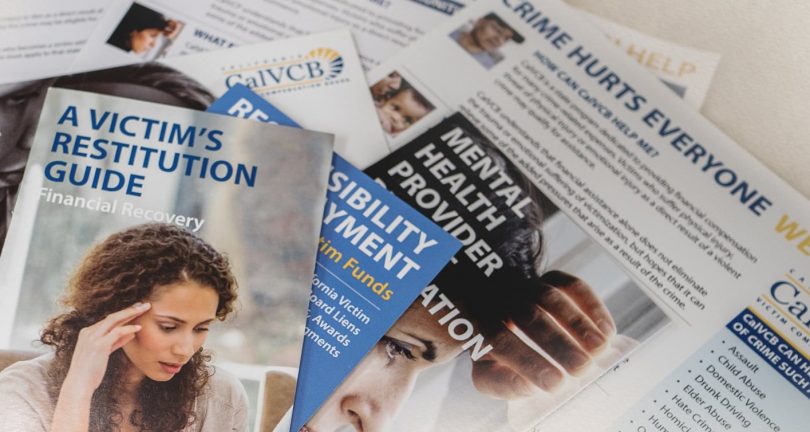In October, California Governor Gavin Newsom made the final call on what remained of hundreds of bills that legislators sent to his desk for approval.
Many of these bills pertained to the criminal legal system, so we decided to break the list up into multiple stories. Earlier parts in this series looked at bills addressing conditions of incarceration in California, policing issues, and youth justice. In this latest story, we’ll look at the 2023 bills meant to directly aid crime survivors.
Access to information and resources
The first bill on the list, SB 86 would require California’s toll-free Victim Resource Center to host information about victims’ rights and resources, including links to resources offered by the state and by each county, as well as information for families of victims.
“While California has some of the broadest crime victims’ rights in the United States, without guidance, many victims struggle to understand these rights and the complicated legal process which they often face alone,” wrote bill author Senator Kelly Seyarto (R-Murietta). “This bill will ensure that information is easier to access, providing clarity and relief to those dealing with trauma associated with being the victim of a crime.”
Untested rape kits
A bill meant to address the continuing issue of untested sexual assault kits, SB 464, by Senator Aisha Wahab (D-Hayward), will require law enforcement, crime labs, and other facilities that work with sexual assault kits to take part in an audit of untested kits in their possession. Police agencies and labs will then create a record in the California Department of Justice’s Sexual Assault Forensic. Evidence Tracking (SAFE-T) database for every rape kit in their possession that has not had DNA testing completed as of July 1, 2026.
One year after that deadline, the DOJ must submit a report to CA legislators summarizing the results from the audit.
“By allowing Californians to understand the status of all sexual assault evidence kits in the state,” wrote Sen. Wahab, “SB 464 will help to identify any systemic issues that may prevent timely testing of these kits, and provide transparency and accountability for survivors, law enforcement, and the public.”
Civil litigation
AB 452, by Assemblymember Dawn Addis (D-Morro Bay), would eliminate the statute of limitations for people who have experienced childhood sexual assault to take civil legal action against those who caused the harm.
Another bill, AB 933, by Asm. Cecilia Aguiar-Curry (D-Winters), will protect victims of sexual assault, harassment, and discrimination from being retaliatorily sued for defamation for speaking factually and “without malice” about their experiences.
“This bill would make it harder for perpetrators to retaliate against survivors with legal threats and intimidation, but does not apply to unfounded claims,” said Asm. Aguiar-Curry. “The protections in this bill will help encourage survivors to speak their truth and expose the behavior of those who harmed them. In addition, AB 933 helps take the burden off of survivors by providing reasonable attorneys’ fees and damages if they successfully defend themselves against meritless lawsuits.”
Compensation for survivors
The California Victim Compensation Board (CalVCB) covers expenses that arise in the wake of a crime, including medical treatment, mental health counseling, burial expenses, and income loss. Victims of who sustain injuries, or who were child victims of rape, abduction, and other crimes, can seek compensation for emotional injuries. AB 56, by Assemblymember Tom Lackey (R-Palmdale), would expand the list of crimes that make a person eligible to seek assistance for emotional injuries to include murder, torture, kidnapping, stalking, and various sexual offenses.
“There is immediacy to assist crime victims seeking remedies to trauma. A victim-survivor’s pain and suffering following violent crimes leave them shaken to their core,” Asm. Lackey wrote about his bill. “Access to resources would make therapies and other forms of care more readily available. As we reorient our justice system, we should look to implement trauma-informed policies.” A related bill, SB 838, a bill that sought to remove barriers to victim compensation claims for people seriously hurt or killed by law enforcement, or who “fail to cooperate” with police, did not make it to Newsom’s desk this year.

